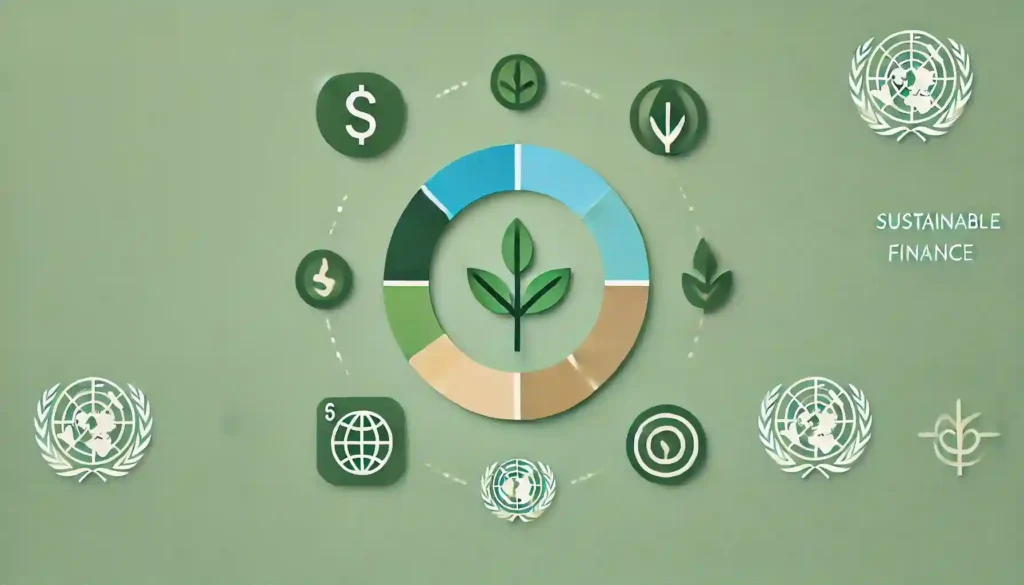
🌍 Sustainable Finance: Responsible Investing, Conscious Spending, and Aligning Finances with Your Values
In recent years, sustainable finance has emerged as a powerful movement reshaping how individuals, businesses, and institutions think about money. It goes beyond traditional financial goals of profit and growth by integrating environmental, social, and governance (ESG) factors into financial decisions. The aim? To promote responsible investing, conscious spending, and aligning your finances with your personal values for a positive impact on the world.
This article explores what sustainable finance means, why it matters, and how you can incorporate it into your financial life.
What is Sustainable Finance?
Sustainable finance refers to the practice of making financial decisions that consider not only economic returns but also the long-term impact on society and the environment. It involves investing in companies and projects that are environmentally responsible, socially equitable, and governed ethically.
The core idea is to channel capital toward sustainable development goals (SDGs) like climate action, clean energy, social justice, and corporate transparency. This approach aims to create value for investors while contributing to a healthier planet and more inclusive society.
Why Sustainable Finance Matters
The global economy faces urgent challenges: climate change, social inequality, resource depletion, and corporate malpractices. Traditional financial models often overlook these externalities, leading to risks that can affect investment returns and economic stability.
Key reasons to embrace sustainable finance include:
- Mitigating Risks: Environmental disasters, social unrest, and governance scandals can negatively impact companies’ performance.
- Seizing Opportunities: The transition to a low-carbon economy opens new markets in renewable energy, sustainable agriculture, and green technologies.
- Meeting Investor Demand: Increasingly, investors want their money to support causes aligned with their values.
- Encouraging Corporate Responsibility: Sustainable finance pressures companies to improve practices related to labor rights, environmental stewardship, and ethical governance.
- Protecting Future Generations: Aligning finance with sustainability helps safeguard the planet and social systems for years to come.
Responsible Investing: More Than Just Profit
Responsible investing, often called ESG investing, integrates environmental, social, and governance criteria into investment decisions. It’s not about sacrificing returns; in fact, studies show ESG-focused portfolios can perform competitively or even better over time.
Environmental factors
- Carbon footprint and greenhouse gas emissions
- Waste management and pollution control
- Resource efficiency and renewable energy use
Social factors
- Labor practices and employee relations
- Community engagement and social impact
- Diversity and inclusion policies
Governance factors
- Board composition and independence
- Transparency and anti-corruption measures
- Executive compensation and shareholder rights
By evaluating these criteria, investors support companies committed to sustainable practices, reducing exposure to reputational or regulatory risks.
Conscious Spending: Aligning Purchases with Your Values
Sustainable finance also applies to everyday spending habits. Conscious spending means making purchase decisions that reflect your ethical priorities, such as:
- Buying from brands with fair labor practices
- Choosing eco-friendly and cruelty-free products
- Supporting local businesses and fair trade
- Reducing waste through reuse and recycling
This mindful approach not only reduces your environmental footprint but also encourages companies to adopt more sustainable practices by rewarding responsible producers with your dollars.
How to Incorporate Sustainable Finance into Your Life
1. Evaluate Your Investments
Review your investment portfolio to assess exposure to ESG risks and opportunities. Consider shifting assets toward sustainable funds, green bonds, or companies with strong sustainability records.
2. Choose Sustainable Banking Options
Some banks offer green loans, sustainable savings accounts, or impact investing opportunities. Selecting a financial institution that aligns with your values can amplify your impact.
3. Adopt Conscious Spending Habits
Analyze your spending patterns and identify areas to make more sustainable choices. Small changes, like buying less fast fashion or reducing single-use plastics, add up over time.
4. Engage in Shareholder Advocacy
If you hold stocks, participate in shareholder meetings and vote on sustainability issues. Active ownership encourages companies to improve ESG practices.
5. Educate Yourself and Others
Stay informed about sustainable finance trends and share knowledge with friends and family. Awareness drives demand for responsible products and investments.
Challenges and Criticisms
While sustainable finance is growing rapidly, it faces challenges:
- Greenwashing: Some companies exaggerate sustainability claims to attract investors, making it difficult to identify genuinely responsible firms.
- Lack of Standardization: Diverse ESG criteria and reporting standards complicate comparisons and assessments.
- Potential Trade-offs: Balancing financial returns with sustainability goals can be complex, especially in emerging sectors.
Being a diligent, informed investor or consumer helps navigate these challenges and promote transparency.
The Future of Sustainable Finance
The trend toward sustainable finance is accelerating, driven by climate goals, social movements, and regulatory changes. Innovations like impact investing, social bonds, and ESG data analytics are expanding options for responsible capital allocation.
As awareness grows, the line between financial performance and social impact will continue to blur, leading to a more equitable and resilient global economy.
Conclusion
Sustainable finance invites us to rethink the role of money—not just as a means to accumulate wealth but as a tool to create positive change. By embracing responsible investing, practicing conscious spending, and aligning finances with our values, we contribute to a healthier planet and fairer society while building lasting financial security.
Whether you’re an investor, consumer, or business owner, integrating sustainability into your financial decisions is both a smart strategy and a powerful statement of your commitment to the future.
Start today by reflecting on your values, educating yourself on sustainable options, and taking small, intentional steps toward a more responsible financial life.
